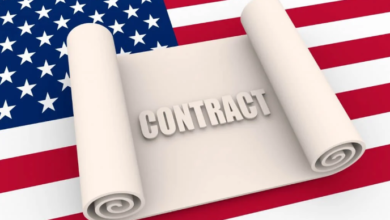Basic Contract Law For Paralegals 10th Edition

Understanding contract law is essential for paralegals navigating the complexities of legal agreements. Whether you’re drafting, reviewing, or managing contracts, having a solid grasp on the fundamentals can make all the difference. The 10th edition of “Basic Contract Law for Paralegals” offers invaluable insights and practical knowledge tailored to those in this vital support role.
This guide not only covers historical perspectives but also delves into modern applications within the legal landscape. As businesses expand and transactions become increasingly intricate, your expertise in contract law will be critical. Let’s explore how you can enhance your skills and knowledge in this essential area of legal practice.
History and Evolution of Contract Law
The history of contract law traces back to ancient civilizations. The Code of Hammurabi, created around 1754 BC in Babylon, laid down rules governing agreements and transactions.
In Roman times, contract principles began taking shape with the development of legal doctrines like consensus and obligation. This era introduced concepts that still resonate today.
Fast forward to the Middle Ages, where English common law emerged. It established judicial precedents that influenced modern contract law significantly.
The Industrial Revolution further transformed contracts as commerce expanded rapidly. Standardized forms became essential for efficiency and clarity in business arrangements.
Today’s landscape reflects ongoing changes driven by technology and globalization. Digital contracts are now prevalent, requiring paralegals to stay informed about evolving regulations and practices within this dynamic field. Understanding this evolution is vital for anyone working with basic contract law for paralegals 10th edition.
Elements of a Valid Contract
A valid contract is built on several essential elements. First, there must be an offer and acceptance. One party proposes terms, while the other agrees to them.
Next comes consideration. This refers to something of value exchanged between the parties. It could be money, services, or even a promise.
Capacity is another crucial element. All parties involved must have the legal ability to enter into a contract. Minors or mentally incapacitated individuals often lack this capacity.
Legality also plays a significant role in validity. The purpose of the agreement must align with laws and public policy.
Mutual assent is key; both parties should genuinely understand and agree to the terms without any coercion or misrepresentation influencing their decision-making process.
Types of Contracts
Contracts come in various forms, each serving a unique purpose. One of the most common types is the **bilateral contract**. Here, both parties agree to fulfill their obligations, creating a mutual exchange.
On the other hand, a **unilateral contract** involves one party making a promise that only they are obligated to fulfill once certain conditions are met. This often appears in reward situations.
Another type is the **express contract**, where terms are explicitly stated verbally or in writing. Conversely, an **implied contract** arises from actions or circumstances rather than explicit language.
Let’s not forget about **executed contracts**, which have been fully performed by all parties involved. In contrast, an **executory contract** remains partially fulfilled and requires further action before completion. Understanding these distinctions helps paralegals navigate legal discussions with greater clarity.
Breach of Contract and Remedies
Breach of contract occurs when one party fails to fulfill their obligations under the agreement. This can happen in various ways, such as not delivering goods on time or failing to pay for services rendered.
When a breach happens, the non-breaching party has several remedies available. The most common is monetary damages, which aim to compensate for any loss incurred due to the breach.
Another option is specific performance, where a court orders the breaching party to fulfill their end of the contract. This remedy is often used in unique situations, like real estate transactions.
In some cases, parties may seek rescission of the contract, effectively canceling it and returning both sides to their pre-contractual positions. Each situation dictates what remedy will be appropriate based on circumstances and legal standards involved.
Drafting and Reviewing Contracts
Drafting and reviewing contracts is a critical skill for paralegals. It requires attention to detail and an understanding of the underlying legal principles.
When drafting, clarity is key. Use straightforward language to avoid ambiguity. Each term should have a specific meaning that parties can easily interpret.
Reviewing contracts involves scrutinizing every clause for compliance with legal standards. Paralegals must identify potential pitfalls such as vague terms or unfavorable conditions.
It’s essential to ensure that all necessary elements are included, from definitions to termination clauses. This thoroughness can prevent disputes down the line.
Moreover, familiarity with industry-specific jargon enhances precision in contract language. Knowing how different sectors operate aids in creating tailored agreements that meet client needs effectively.
Regularly updating skills through workshops or continuing education keeps paralegals sharp in this dynamic area of law. Adapting to new developments ensures relevance in contract practice.
Common Issues in Contract Law for Paralegals
Paralegals often encounter various challenges in contract law that require keen attention to detail. One common issue is misinterpretation of terms. Even slight ambiguity can lead to significant disputes, so clarity is crucial.
Another frequent hurdle involves the inability to identify enforceability issues. Certain contracts may contain clauses that are illegal or unconscionable, ultimately rendering them void.
Additionally, paralegals must be vigilant about deadlines. Statutes of limitations can vary widely depending on the type of contract and jurisdiction involved.
The drafting process itself presents hurdles as well. A lack of standardized templates can result in inconsistencies and oversights that jeopardize a client’s interests.
Staying updated with changes in laws and regulations is essential for paralegals working with contracts. This demands ongoing education and adaptability within an ever-evolving legal landscape.
Ethical Considerations for Paralegals in Contract Law
Ethical considerations play a crucial role in the practice of contract law for paralegals. Maintaining client confidentiality is paramount. Paralegals must handle sensitive information with care, ensuring it remains secure.
Honesty and integrity are also essential. Misrepresentation or deceptive practices can lead to serious legal consequences for both the paralegal and their firm. It’s vital to present facts accurately and avoid embellishment.
Understanding conflicts of interest is another critical area. Paralegals should be vigilant about situations that may compromise their objectivity or loyalty to a client.
Additionally, staying within the scope of practice is important. While paralegals can assist in many tasks, they must remember not to provide legal advice unless authorized.
Adhering to these ethical guidelines fosters trust between clients and professionals while promoting a fair legal process.
The Role of Paralegals in Contract Disputes
Paralegals play a crucial role in navigating contract disputes. They serve as the backbone of legal teams, often handling essential tasks that facilitate smoother resolution processes.
Research is one of their primary responsibilities. Paralegals dig deep into case law, statutes, and regulations to provide attorneys with relevant information. This groundwork sets the stage for effective legal strategies.
They also assist in drafting documents related to disputes like motions and pleadings. Their attention to detail ensures that all necessary elements are included, reducing potential issues down the line.
Communication is another key area where paralegals excel. They often liaise between clients and attorneys, ensuring everyone stays informed throughout the dispute process.
Additionally, they help prepare for negotiations or meditations by organizing evidence and outlining arguments clearly. This preparation can make a significant difference when resolving conflicts efficiently while minimizing costs for clients.
Conclusion
Understanding basic contract law for paralegals is essential for navigating the complexities of legal agreements. This field has a rich history that shapes modern practices, ensuring that paralegals can effectively support attorneys and clients alike.
Grasping the elements of a valid contract—offer, acceptance, consideration, capacity, and legality—is crucial for identifying enforceable agreements. Familiarity with various types of contracts allows paralegals to recognize their unique characteristics and implications in different scenarios.
Mastering basic contract law equips paralegals not only with knowledge but also confidence in their abilities to navigate this intricate landscape effectively.

